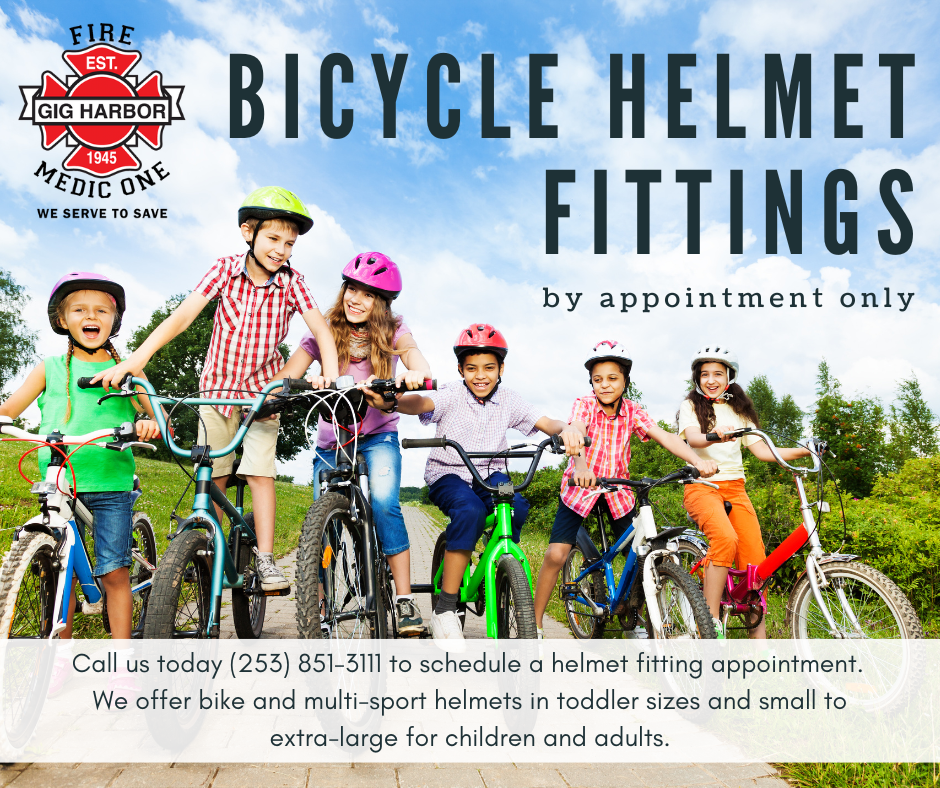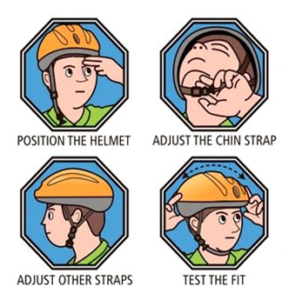Bicycle & Multi-Sport Helmet Program
Gig Harbor Fire & Medic One offers helmet fittings for all ages. We can inspect and fit your current bicycle helmet, or we can supply you with a new FREE helmet while supplies last! We have bike and multi-sport helmets ranging from toddler to adult sizes available.
To schedule your bike helmet fitting call us at 253-851-3111 or come visit us at the Maritime Gig Festival in downtown Gig Harbor.
The wearer must be present to receive the helmet so we can provide a custom fit.

Why are Bicycle Helmets so important?
How do you properly fit a Bicycle Helmet?
It’s not enough to just wear a helmet; it needs to fit properly to be effective. Do a simple “eyes, ears, and mouth” test:
- Eyes: You should be able to look up and see the rim of the helmet. It should be about two finger widths above the eyebrows.
- Ears: Straps should form a “V” under the ears when buckled, and should be snug and comfortable.
- Mouth: With your mouth open, you should feel the helmet hug your head. If not, tighten the straps. The helmet should sit on top of the head in a level position and shouldn’t rock forward and backward or side to side. The helmet straps must always be buckled, but not too tightly.

Do I really need to wear a Bicycle Helmet?
Yes. Laws now require helmet use in many areas. Not to mention, each year bicycle-related deaths number about 900, and United States hospital emergency rooms treat more than 500,000 people for bicycle-related injuries. More children, ages 5 to 14, go to United States hospital emergency rooms for injuries associated with bicycles than any other sport. Many of these injuries involve the head. If you do not wear a bicycle helmet, you are risking your life. No helmet, no wheels. The same rule applies to little ones riding in bicycle trailers and in bike seats. Adults can help set a good example and protect themselves by always wearing a helmet, too.
Will Bicycle Helmets protect me when playing other sports?
Bicycle helmets offer head protection for sports like in-line skating and roller skating. In addition, wrist guards, knee pads, and elbow pads are recommended for these sports. Those who skateboard or do more aggressive (trick or freestyle) skating should consider multi-sport helmets made specifically for these activities that also meet the safety standards. These helmets cover more of the head, especially in the back. Wrist guards, knee pads, and elbow pads will offer additional body protection.
Can I still use my helmet if it has been in a crash?
No. Any helmet that has been involved in a crash needs to be replaced immediately – even if there are no visible signs of damage.

